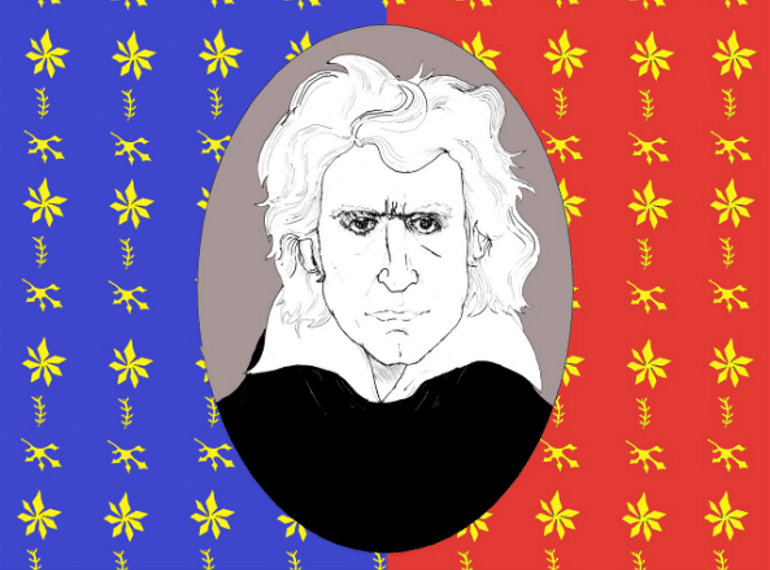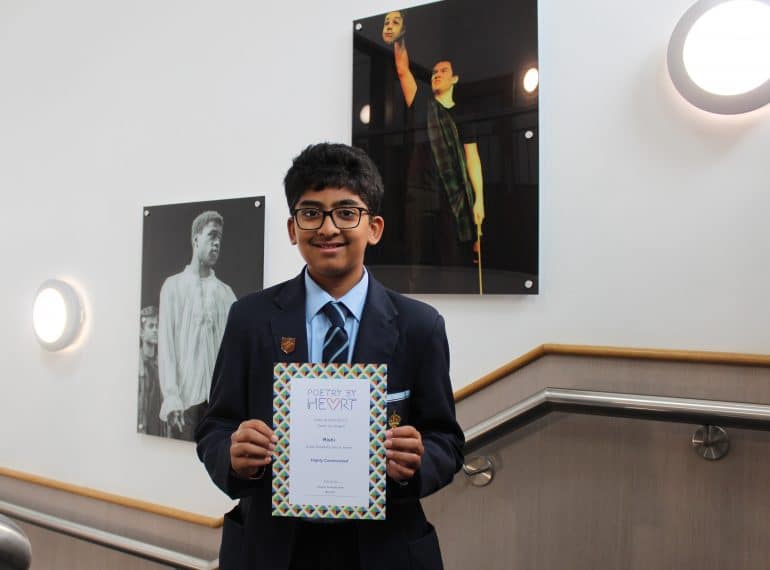
When the School put Rishi Watsalya forward for a national poetry recitation competition, he set out both to put smiles on the faces of his audience – and to send shivers down their spine.
And according to the Poetry By Heart competition judges, Rishi, who had previously impressed his teachers in an internal QE poetry memorisation and recitation contest, managed to do just that.
A Year 7 pupil, he received a Highly Commended certificate for his performance of Walter de la Mare’s mysterious, supernatural The Listeners, published in 1912, and of James Reeves’s 1964 whimsical nonsense poem, Mr Kartoffel.
In her judgment, the Director of the competition, Julie Blake, said that for his first poem, Rishi gave “a well-paced recitation which created the right atmosphere of mystery and suspense”. Regarding Mr Kartoffel, she added: “We loved the way you engaged with your poem and we enjoyed the spirited way in which you approached it. You brought out the humour in the poem very well.”
Poetry By Heart was founded in 2012 by educator Dr Blake and by Andrew Motion, UK Poet Laureate 1999-2009. In addition to the annual competition, there is a website with teaching and learning resources for all ages.
QE English teacher Panayiota Menelaou explained how Rishi came to be selected to take part in the national event. “Initially, we ran an internal competition within the School in which all Year 7 pupils were required to learn by heart and perform a poem of their choice. We held classroom-based heats and then an internal final, and Rishi was chosen as the overall winner.”
For Poetry By Heart, Rishi had to learn two poems, a pre-1914 and a post-1914 poem, which were recorded and submitted to the judges.
“Rishi recited the poems with confidence, and I was very impressed with his use of voice intonation, body movements and hand gestures which helped bring the poem to life and give the words meaning, said Mrs Menelaou, who oversaw QE’s participation in the event.
Head of English Robert Hyland congratulated Rishi on his success: “He has shown an outstanding effort here, to be able to perform two poems with the confidence and understanding shown by Rishi is highly impressive.
“There are few better ways to get to understand a poem than being able to perform it – each decision made by the reader about tone, pace, rhythm and emphasis has to be based on an understanding of what the poem and the poet are trying to communicate,” he added.
Rishi himself said he that participating in the event was “extremely fun!” He chose The Listeners because “it was quite mysterious and chilling,” and give him plenty of opportunity to stir up the emotions “For contrast, my second poem, Mr Kartoffel, was quite funny and wacky, and when I first read it, it definitely put a smile on my face.”
Rishi explained the secret to his success: “When learning my poems, I discovered that it was much easier to learn small sections at a time, rather than trying to do it all in one go. When I was performing, I really meant what I was saying and ‘became’ my character, so I really enjoyed it! My aim was to make my audience feel engaged and drawn in to my poems.”
Assistant Head (Pupil Involvement) Crispin Bonham-Carter said: “Poetry should be celebrated loudly! Its ideas, sounds and rhythms should resonate around a school – especially a school founded by Shakespeare’s generation. Well done, Rishi Watsalya for continuing to beat our poetic drum and well done to all who took part.”
The Listeners
By Walter de la Mare
‘Is there anybody there?’ said the Traveller,
Knocking on the moonlit door;
And his horse in the silence champed the grasses
Of the forest’s ferny floor:
And a bird flew up out of the turret,
Above the Traveller’s head:
And he smote upon the door again a second time;
‘Is there anybody there?’ he said.
But no one descended to the Traveller;
No head from the leaf-fringed sill
Leaned over and looked into his grey eyes,
Where he stood perplexed and still.
But only a host of phantom listeners
That dwelt in the lone house then
Stood listening in the quiet of the moonlight
To that voice from the world of men:
Stood thronging the faint moonbeams on the dark stair,
That goes down to the empty hall,
Hearkening in an air stirred and shaken
By the lonely Traveller’s call.
And he felt in his heart their strangeness,
Their stillness answering his cry,
While his horse moved, cropping the dark turf,
’Neath the starred and leafy sky;
For he suddenly smote on the door, even
Louder, and lifted his head:—
‘Tell them I came, and no one answered,
That I kept my word,’ he said.
Never the least stir made the listeners,
Though every word he spake
Fell echoing through the shadowiness of the still house
From the one man left awake:
Ay, they heard his foot upon the stirrup,
And the sound of iron on stone,
And how the silence surged softly backward,
When the plunging hoofs were gone.
Mr Kartoffel
By James Reeves
Mr Kartoffel’s a whimsical man;
He drinks his beer from a watering-can,
And for no good reason that I can see
He fills his pockets with china tea.
He parts his hair with a knife and fork
And takes his ducks on a Sunday walk.
Says he, “If my wife and I should choose
To wear our stockings outside our shoes,
Plant tulip bulbs in the baby’s pram
And eat tobacco instead of jam,
And fill the bath with cauliflowers,
That’s nobody’s business at all but ours.”
Says Mrs. K., “I may choose to travel
With a sack of grass or a sack of gravel,
Or paint my toes, one black, one white,
Or sit on a bird’s nest half the night –
But whatever I do that is rum or rare,
I rather think that is my affair.
So fill up your pockets with stamps and string,
And let us be ready for anything!”
Says Mr. K. to his whimsical wife,
“How can we face the storms of life,
Unless we are ready for anything?
So if you’ve provided the stamps and the string,
Let us pump up the saddle and harness the horse
And fill him with carrots and custard and sauce,
Let us leap on him lightly and give him a shove
And it’s over the sea and away, my love!”
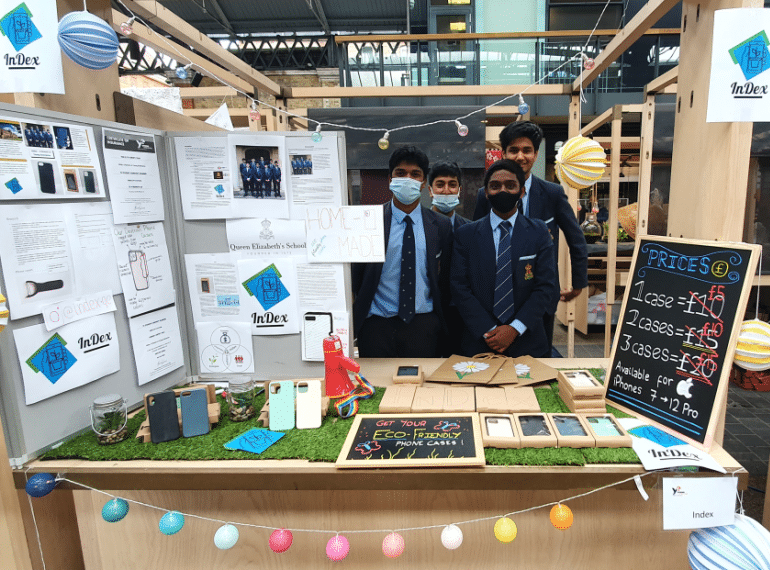
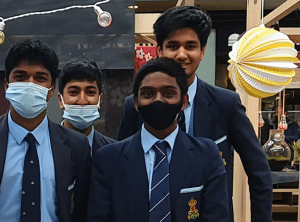 Adjudicators at the Young Enterprise Trade Fair at Old Spitalfields Market praised the InDex Young Enterprise company for their creative approach and for the salesmanship they showed there.
Adjudicators at the Young Enterprise Trade Fair at Old Spitalfields Market praised the InDex Young Enterprise company for their creative approach and for the salesmanship they showed there. “Our team impressed the judges massively,” said Mr Czirok-Carman. “They were extremely active – and very successful – in finding sales, and the judges therefore commented both on the creativity of the product and on their excellent sales techniques.
“Our team impressed the judges massively,” said Mr Czirok-Carman. “They were extremely active – and very successful – in finding sales, and the judges therefore commented both on the creativity of the product and on their excellent sales techniques.
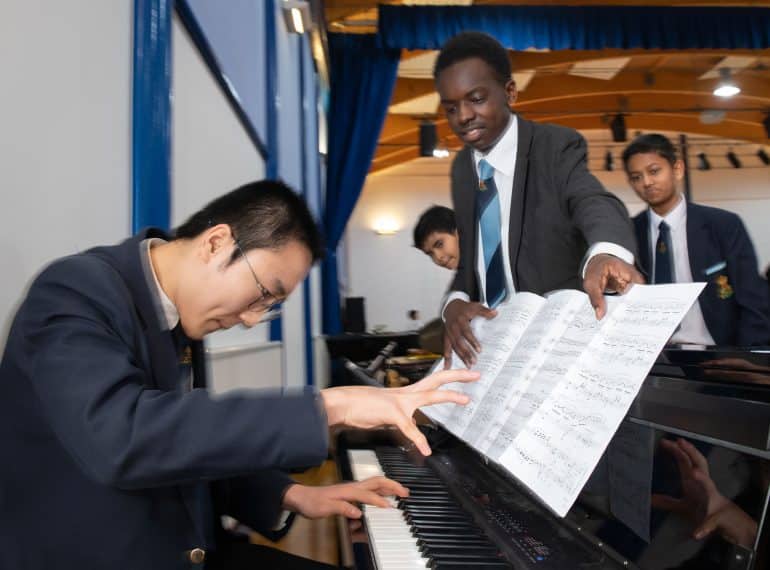
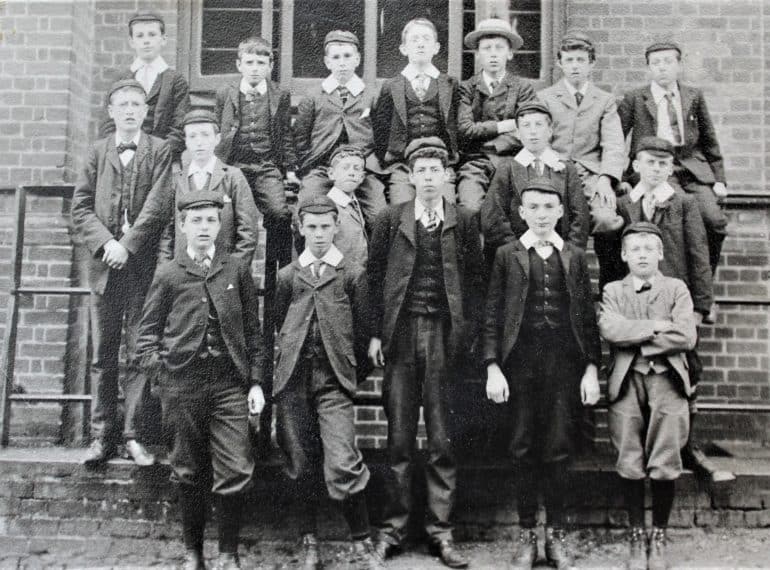
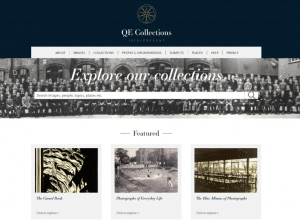 Guests at the public evening ‘town hall’ event, including Old Elizabethans and others with an interest in local history, were given a virtual guided tour and shown how to get the best out of the extensive high-quality online assets spanning more than four centuries.
Guests at the public evening ‘town hall’ event, including Old Elizabethans and others with an interest in local history, were given a virtual guided tour and shown how to get the best out of the extensive high-quality online assets spanning more than four centuries.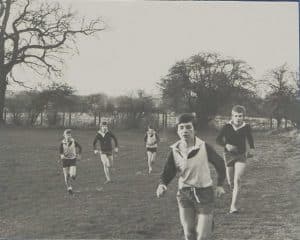 “I am very excited that we are now able to share QE Collections with a wider audience.”
“I am very excited that we are now able to share QE Collections with a wider audience.”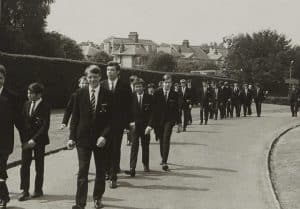 “We are constantly putting new material online, so the highlights would be different if I did this event in a few months’ time, or even next month,” Mr Bowyer added.
“We are constantly putting new material online, so the highlights would be different if I did this event in a few months’ time, or even next month,” Mr Bowyer added.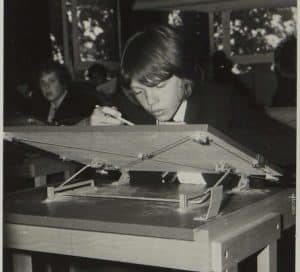 QE Collections uses professional digitisers to ensure its digitised files are of very high quality and has employed an industry-standard digital preservation system to ensure long-term availability for these digitised files, Mr Bowyer said, adding that while digital files are excellent for improving access, they are harder to preserve than physical objects, as digital storage media can become obsolete and data can become corrupted.
QE Collections uses professional digitisers to ensure its digitised files are of very high quality and has employed an industry-standard digital preservation system to ensure long-term availability for these digitised files, Mr Bowyer said, adding that while digital files are excellent for improving access, they are harder to preserve than physical objects, as digital storage media can become obsolete and data can become corrupted.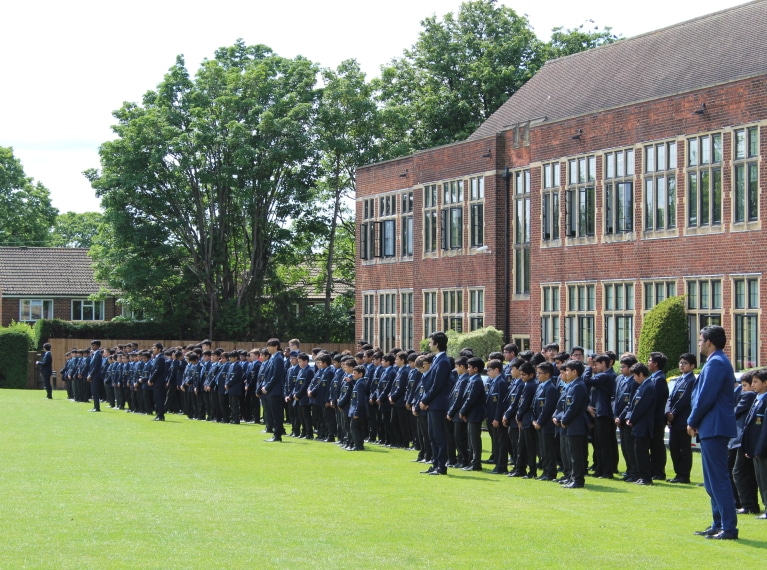
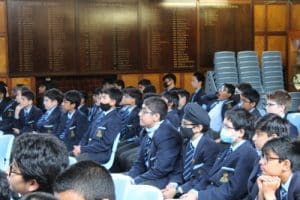 The School’s youngest pupils would normally be at the very heart of Founder’s Day, with all joining the morning service at Chipping Barnet Parish Church and then taking part in other formal elements – such as the Roll Call and the Reading of the School Chronicle – before enjoying the fun of the afternoon fete.
The School’s youngest pupils would normally be at the very heart of Founder’s Day, with all joining the morning service at Chipping Barnet Parish Church and then taking part in other formal elements – such as the Roll Call and the Reading of the School Chronicle – before enjoying the fun of the afternoon fete.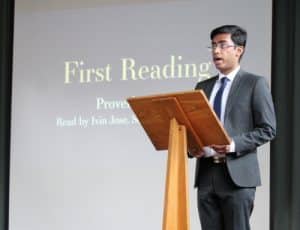 “Those who held steadfast in difficult times, as we’ve all had to do over the past year, and those who made bold decisions in the long-term interests of our Elizabethan community.”
“Those who held steadfast in difficult times, as we’ve all had to do over the past year, and those who made bold decisions in the long-term interests of our Elizabethan community.”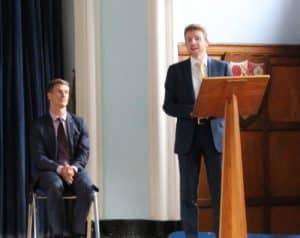 Introducing Mr Rose, Mr Harrison told the boys that he was reprising his role as the youngest-ever Founder’s Day guest speaker in 2011.
Introducing Mr Rose, Mr Harrison told the boys that he was reprising his role as the youngest-ever Founder’s Day guest speaker in 2011.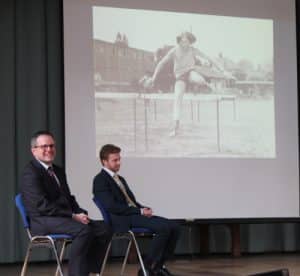 Headmaster Neil Enright then fulfilled another time-honoured Founder’s Day practice: the reading of the School Chronicle. This charts QE’s history, starting in 1568, when one of the School’s early promoters, Edward Underne, became rector of Chipping Barnet.
Headmaster Neil Enright then fulfilled another time-honoured Founder’s Day practice: the reading of the School Chronicle. This charts QE’s history, starting in 1568, when one of the School’s early promoters, Edward Underne, became rector of Chipping Barnet.
